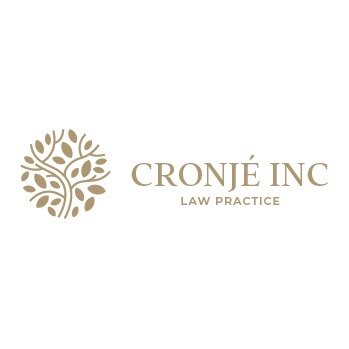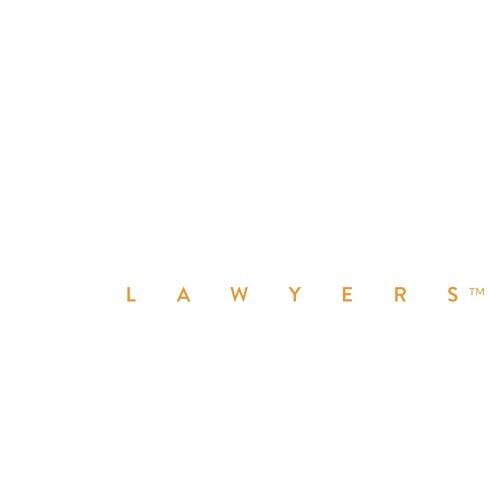Best Energy, Environment & ESG Lawyers in Windhoek
Share your needs with us, get contacted by law firms.
Free. Takes 2 min.
List of the best lawyers in Windhoek, Namibia
About Energy, Environment & ESG Law in Windhoek, Namibia
Energy, Environment, and ESG (Environmental, Social, Governance) law in Windhoek covers the legal frameworks shaping how businesses and individuals interact with Namibia’s natural resources, environmental protection, and corporate responsibility. With growing international and local focus on sustainability and renewable energy, the legal landscape addresses issues ranging from the development of wind and solar power, water use, and environmental impact assessments to broader concerns related to social ethics and governance in corporate operations. As the capital city, Windhoek is home to key regulatory bodies and legal practitioners specializing in these areas, making it a focal point for compliance and legal guidance in energy, environmental protection, and ESG best practices.
Why You May Need a Lawyer
Many individuals and companies in Windhoek may need legal assistance with Energy, Environment, and ESG matters due to the complexity and evolving nature of the laws. Common situations where legal help may be required include:
- Starting or investing in a renewable energy project, such as solar or wind farms
- Complying with environmental regulations during construction or mining operations
- Facing enforcement actions or penalties from regulatory bodies for non-compliance
- Seeking permits or licenses for water use, waste disposal, or emissions
- Undertaking Environmental Impact Assessments (EIAs) for new developments
- Addressing community concerns about environmental or social impacts
- Meeting ESG reporting requirements for local or international investors
- Handling disputes related to land use, environmental harm, or resource allocation
- Resolving labor or governance issues under ESG standards
Lawyers can clarify your obligations, ensure proper documentation, defend your interests, and help you avoid costly mistakes.
Local Laws Overview
Namibia’s legal system consists of statutes, regulations, and international agreements relevant to energy, environment, and ESG. Key laws and principles include:
- The Environmental Management Act, 2007, which sets requirements for Environmental Impact Assessments and sustainable development
- The Electricity Act, 2007 and its amendments regulate electricity generation, transmission, and distribution, including independent power producers
- The Water Resources Management Act, 2013 controls water use, waste water management, and pollution
- The Minerals (Prospecting and Mining) Act, 1992 governs mineral rights and environmental obligations
- Various regulations address hazardous substances, air quality, and waste management
- Namibia’s ESG and sustainability framework is increasingly shaped by international standards, investor requirements, and corporate responsibility guidelines
Procedural requirements, such as public participation and obtaining permits, are strictly enforced. Non-compliance can result in fines, licences being revoked, or even criminal charges. Lawyers help ensure clients understand these obligations, prepare the correct documentation, and represent interests before authorities or in court.
Frequently Asked Questions
What is ESG, and why does it matter in Namibia?
ESG stands for Environmental, Social, and Governance. It refers to standards companies follow for managing environmental impacts, social responsibility, and corporate governance. In Namibia, attracting international investment and operating responsibly requires companies to meet certain ESG criteria.
Do I need an Environmental Impact Assessment for my project?
Most developments that might significantly affect the environment, such as mining, large construction projects, or infrastructure, require an Environmental Impact Assessment by law. The process includes scoping, public consultation, and a report submitted to the authorities.
Who regulates energy projects in Windhoek?
The Electricity Control Board (ECB) regulates electricity generation and distribution. The Ministry of Mines and Energy oversees energy policy, and for renewable energy, there are specific requirements for licensing and environmental compliance.
What are the penalties for environmental non-compliance?
Penalties can include hefty fines, suspension or cancellation of permits, and even criminal prosecution for severe breaches. Enforcement has become more stringent in recent years.
How do I get a permit for a solar or wind project?
You must apply to the ECB for an electricity license and ensure full compliance with environmental laws, including submitting an EIA. Approval from other bodies, such as local authorities, may also be needed.
Can communities challenge developments on environmental grounds?
Yes. Communities and individuals can raise objections during the EIA process and may take legal action if their environmental rights are affected. Proper consultation with communities is a legal and ethical requirement.
Are there incentives for investing in renewable energy?
There are various government policies and investment incentives for renewable energy, including tax deductions and preferential licensing for projects that align with Namibia’s goals for sustainable development.
What is required for ESG reporting?
ESG reporting requirements may depend on your industry and investor demands. Large companies and listed entities are increasingly expected to disclose their ESG practices, risks, and impacts in annual reports, often following international frameworks.
Does Namibian law protect whistleblowers on ESG issues?
There is some legal protection for whistleblowers, especially for reporting environmental harm, corruption, or health and safety issues. However, whistleblowing procedures and protections are still developing.
How do I resolve a dispute over land or water use?
Many disputes can be resolved through mediation or negotiation, but some may require litigation. Seeking legal advice early helps clarify your rights and options under Namibian law.
Additional Resources
Several organizations and government bodies provide support and information for Energy, Environment, and ESG matters in Windhoek:
- The Electricity Control Board (ECB): Regulatory oversight of electricity sector
- The Ministry of Mines and Energy: Policy, licensing, and oversight in energy and minerals
- The Ministry of Environment, Forestry and Tourism: Environmental compliance and permits
- The Environmental Commissioner: Oversight of Environmental Impact Assessments
- The Namibian Standards Institution: Technical and safety standards
- Namibia Chamber of Environment: Information and guidance on environmental protection
- Legal practitioners specializing in energy, environmental, and ESG law
Consulting with the relevant authority or organization can help clarify requirements for your specific situation.
Next Steps
If you need legal help regarding Energy, Environment, or ESG matters in Windhoek, consider taking the following steps:
- Identify your specific legal needs, such as permitting, compliance, or dispute resolution
- Gather relevant documentation, such as project plans, EIA reports, correspondence with authorities, and corporate policies
- Contact a qualified lawyer or law firm experienced in Namibian energy, environmental, and ESG law
- Consider reaching out to government agencies or specialist organizations for additional guidance
- Discuss your timeline and goals with your legal advisor to ensure timely compliance and protect your interests
Early legal advice is crucial to avoid costly errors and to navigate the complex legal frameworks in Energy, Environment, and ESG effectively. Taking proactive steps will help you meet your obligations and achieve your objectives in Windhoek.
Lawzana helps you find the best lawyers and law firms in Windhoek through a curated and pre-screened list of qualified legal professionals. Our platform offers rankings and detailed profiles of attorneys and law firms, allowing you to compare based on practice areas, including Energy, Environment & ESG, experience, and client feedback.
Each profile includes a description of the firm's areas of practice, client reviews, team members and partners, year of establishment, spoken languages, office locations, contact information, social media presence, and any published articles or resources. Most firms on our platform speak English and are experienced in both local and international legal matters.
Get a quote from top-rated law firms in Windhoek, Namibia — quickly, securely, and without unnecessary hassle.
Disclaimer:
The information provided on this page is for general informational purposes only and does not constitute legal advice. While we strive to ensure the accuracy and relevance of the content, legal information may change over time, and interpretations of the law can vary. You should always consult with a qualified legal professional for advice specific to your situation.
We disclaim all liability for actions taken or not taken based on the content of this page. If you believe any information is incorrect or outdated, please contact us, and we will review and update it where appropriate.
Browse energy, environment & esg law firms by service in Windhoek, Namibia
Windhoek, Namibia Attorneys in related practice areas.















